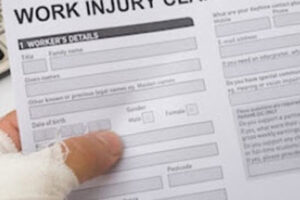Florida Workers’ Compensation & Concurrent Employment

For good or ill, many people in the U.S. have to work more than one job to make ends meet. This can help with bills and overall quality of life, but it sometimes can cause problems if you are injured on the job. If you are hurt while working at one job, it can be confusing to determine exactly what numbers to use in making your workers’ compensation claim. Enlisting a knowledgeable attorney can help to clarify matters.
Potential Loss Of Two Incomes
When you file a workers’ compensation claim, a measurement called the average weekly wage (AWW) is crucial in establishing the amount of benefits to which an injured worker is entitled. For example, if someone is injured at work and rendered permanently and totally disabled, Florida law holds that they will be paid 66 ⅔ percent of their average weekly wage during the “continuance of such total disability.” The formula for calculating AWW is complex, not easily done by the average person, but when someone has concurrent employment it can become even more difficult.
What this means is that many workers with more than one job wind up confused and concerned, because oftentimes, an injury prevents them from working at both jobs, not just one. In turn, that means that they need to find a way to replace both of their income streams. While an injured employee is entitled to workers’ compensation coverage, including lost wages, from the employer under whose aegis they were injured, they cannot receive the same coverage from their second employer simply because they were not injured while working at that job.
Are Both Your Jobs Covered?
Despite worker confusion, Florida law does make allowances for those with more than one job. The relevant law holds that if a person has worked with a covered employer for the 13 weeks immediately preceding their accident while working with a second covered employer, they are allowed to add both wages together when calculating their AWW. What this means is that the total amount they make will be reflected in their workers’ compensation claim – after all, simply because one job was the site of the injury does not mean that the second is not affected.
It is crucial to make sure that both your employers are covered under Florida’s workers’ compensation law – generally, all businesses not in the construction or agriculture industries that have at least 4 employees are required to carry workers’ compensation insurance (the rules for those industries are somewhat more complex). If your second job is not covered, you will generally not be able to factor your income into your workers’ compensation claim, though if you do receive any wages from them after your injury, they will at least not be factored into offsetting temporary disability benefits.
Call A Winter Park Workers’ Compensation Attorney
Being injured at work can cause serious problems for your family going forward, but having a knowledgeable attorney on your side can help answer questions and calm your fears. The Winter Park workers’ compensation attorneys at the Hornsby Law Group have handled many of these cases before and are happy to try and assist you with yours. Call our offices today for a free consultation.
Sources:
leg.state.fl.us/statutes/index.cfm?App_mode=Display_Statute&URL=0400-0499/0440/Sections/0440.14.html
leg.state.fl.us/statutes/index.cfm?App_mode=Display_Statute&URL=0400-0499/0440/Sections/0440.15.html